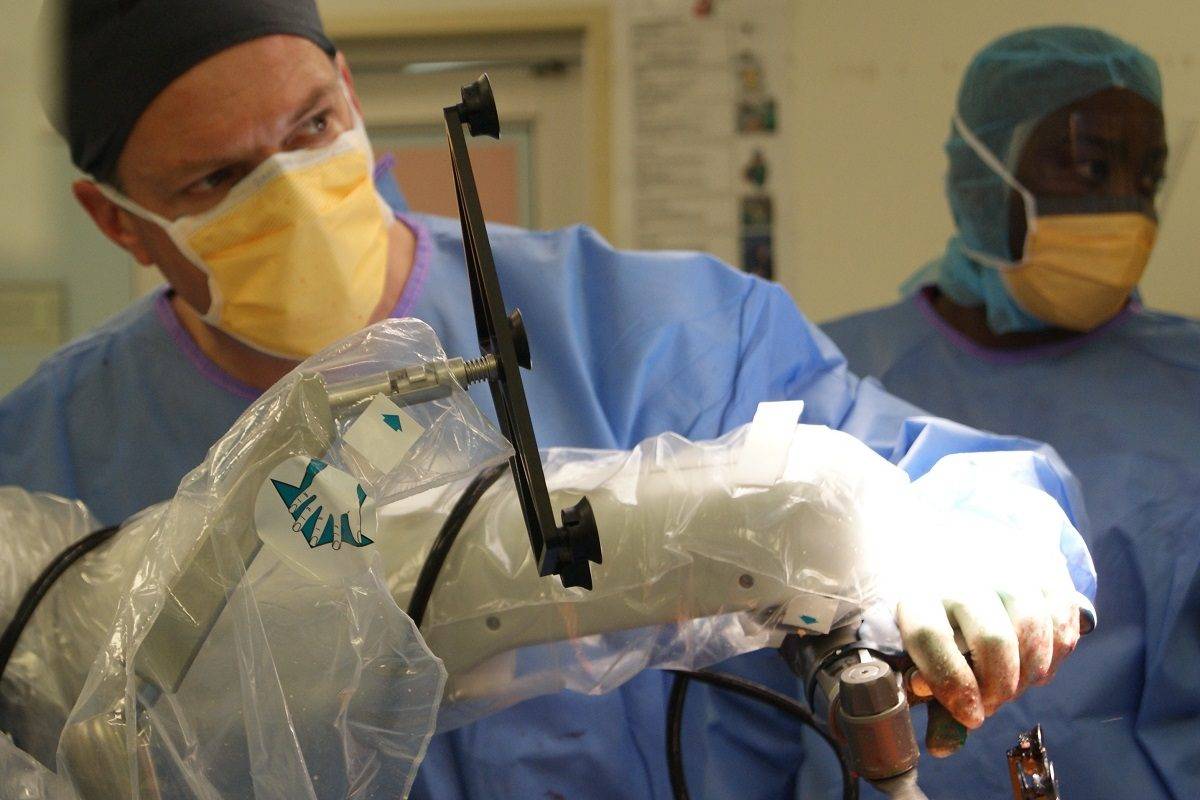It’s The Start Of A New Era: South African Hospital Successfully Conducts Africa’s First Robotic Knee Operation

In Sub-Sahara, Africa, there are many patients suffering from conditions that may benefit from robotic-assisted total joint replacement (TJR). But most of these African countries lack adequate resources to offer this service to all eligible patients.
As for high-income countries, these types of surgeries are frequently done and reports show that they are mostly cost-effective.
A full knee replacement surgery has been done in Linksfield Hospital in Johannesburg using Mako robotic-arm assisted surgery system, the first of its kind in Africa.
One Dr. Chris McCready an Orthopaedic surgeon who performed the operation said that for the US, Uk, and even Europe, total knee replacements are well established.
“There is no national register for local total knee replacements currently, but with an estimated 8 000 to 10 000 total knee replacements taking place in South Africa each year, this technology could signal a new era in personalized joint replacement,” said McCready, who performed the operation.
Robotic surgical systems address many technical challenges and compare favorably to the conventional means in regards to mortality, complications, and length of stay.
A key advantage of the robotic surgical system for this particular scenario was it drew data from computed tomography (CT) scan of the patient’s knee prior to surgery.
“This technology determines the dimensions for the surgical cuts to the bone surfaces so that the best sized implanted joint components can be selected for each patient, and the placement and alignment of the implanted components can be planned in advance,” McCready said.
The surgeon added that the robotic arm system comes in handy during the procedure as it provides a “detailed visual, auditory and tactile feedback to the surgeon” which in turn helps when positioning and aligning the knee implants.
“Benefits for patients that have been noted in outcomes recorded internationally for this advanced surgical option include the achievement of a better balanced and more natural-feeling implanted knee, less post-operative pain and quicker recovery time.”
Notably, the robotic arm system is under the control of the surgeon throughout the procedure and more importantly, it guarantees safety to the patient since only specific areas identified prior to the surgery are operated, ensuring there are no damages done to other knee parts.
Featured Image Courtesy: Supplied